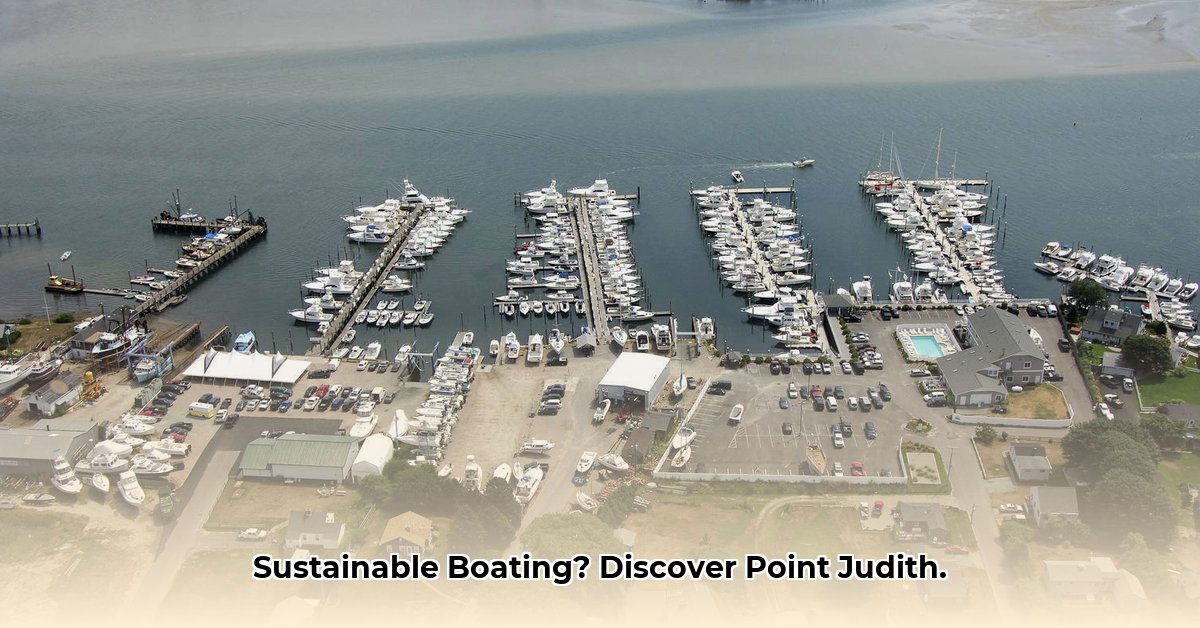
Point Judith and Point View Marinas: A Comparative Case Study in Sustainable Tourism
This case study analyzes the sustainability practices of two Rhode Island marinas, Point Judith and Point View, to identify best practices and areas for improvement within the context of sustainable tourism. The analysis draws upon publicly available data from marina websites, the Rhode Island Coastal Resources Management Council (CRMC), and online reviews. This comparative approach allows for a deeper understanding of effective sustainability strategies within the boating industry. For examples of other marinas, see this Jacksonville Marina example.
Methodology
Data for this case study was gathered from multiple sources to ensure a comprehensive analysis. These sources include:
- Official marina websites: Review of publicly available information on sustainability initiatives.
- Rhode Island Coastal Resources Management Council (CRMC) data: Examination of relevant regulations and compliance information.
- Online reviews from boating platforms: Assessment of visitor perceptions and experiences relating to environmental responsibility.
It is important to note that the reliance on publicly available data limits the depth of analysis in certain areas. Future studies incorporating more detailed internal data from the marinas would enhance the accuracy and granularity of the findings.
Case Study: Point Judith Marina
Point Judith Marina holds Clean Marina certification, indicating a commitment to environmental stewardship. However, the publicly available information lacks specifics regarding the implementation and effectiveness of their sustainability programs. While the certification suggests a degree of environmental responsibility, the absence of quantifiable data on waste reduction, energy consumption, and carbon emissions hinders a comprehensive assessment. Further investigation into their waste disposal practices (recycling rates, hazardous waste management), energy sources (renewable energy usage), and water conservation measures is needed to understand the full scope of their environmental impact.
Case Study: Point View Marina
Point View Marina's approach to sustainability appears community-focused. Information on their website highlights community events and engagement, suggesting a strong social sustainability component. However, the extent of their environmental initiatives requires further investigation. Details regarding their partnerships with local businesses or environmental organizations, as well as their specific operational practices related to waste management and resource consumption, are not readily available. A more detailed account of their sustainability practices is necessary for a robust comparative analysis.
Comparative Analysis
Both Point Judith and Point View present a mixed picture regarding sustainable practices. Point Judith emphasizes certification, while Point View emphasizes community engagement. However, both marinas lack the transparent reporting of quantitative data necessary for a thorough comparison. The absence of readily available information on key performance indicators (KPIs) such as waste reduction rates, energy consumption, and water usage limits the ability to definitively assess the relative effectiveness of each marina's approach. This highlights an overarching need for improved data collection and reporting across the marina industry.
Risk Assessment and Mitigation
Several potential risks are associated with unsustainable marina operations. These risks, along with potential mitigation strategies, are summarized below:
| Risk | Likelihood | Impact | Mitigation Strategy |
|---|---|---|---|
| Environmental Damage (e.g., water pollution) | Moderate | High | Implement robust waste management programs, utilize renewable energy sources, and regularly monitor water quality. |
| Regulatory Non-Compliance | Low | Moderate | Maintain open communication with the CRMC, ensure adherence to all regulations, and proactively address any potential violations. |
| Negative Public Perception | Low | Moderate | Transparent communication regarding sustainability efforts, actively solicit feedback from boaters and the community, and publicly report on progress. |
| Financial Unsustainability | Moderate | Moderate | Explore diverse revenue streams (e.g., eco-tourism partnerships), improve operational efficiency, and secure grants for sustainable initiatives. |
Recommendations
To foster greater sustainability within Rhode Island marinas, the following recommendations are proposed:
- Marina Management: Implement comprehensive data collection and reporting systems to track KPIs related to environmental performance. Establish clear, measurable sustainability goals and publicly report on progress.
- CRMC: Strengthen the Clean Marina certification program by requiring more detailed reporting and rigorous performance standards. Consider tying environmental performance to permit renewals.
- Local Community: Facilitate collaborative efforts between marinas, community groups, and environmental organizations to implement and promote sustainable boating practices.
- Boaters: Educate boaters on eco-friendly boating practices, such as proper waste disposal, fuel efficiency, and responsible anchoring. Promote the adoption of cleaner technologies (e.g., electric or hybrid boats) through incentives and awareness campaigns.
Conclusion
This case study highlights the critical need for data-driven decision-making in assessing and promoting sustainability within the marina industry. While both Point Judith and Point View demonstrate some commitment to sustainability, a lack of transparent data reporting hinders a comprehensive comparison and limits the ability to fully understand the effectiveness of their practices. Future research should focus on collecting more detailed and quantifiable data to allow for a more robust evaluation of sustainability initiatives at these and other Rhode Island marinas. The success of sustainable tourism in Rhode Island hinges on collaborative efforts and a commitment to continuous improvement, grounded in evidence-based assessment.
References
[1] Rhode Island Coastal Resources Management Council (CRMC) website (link to be inserted here). [2] Point Judith Marina Website (link to be inserted here) [3] Point View Marina Website (link to be inserted here)